Music Revenue Calculator
Compare Your Revenue Streams
Calculate how much an artist would earn from traditional streaming versus NFT sales based on real industry data.
Revenue Comparison
Streaming Revenue
Based on industry standards: $0.0013 per stream
Total Earnings: $0.00
NFT Revenue
Artist keeps 70-90% of NFT sale price
Total Earnings: $0.00
With streaming, artists typically receive 13.3% of revenue per stream. With NFTs, artists keep 70-90% of the sale price immediately - no middlemen, no 30-day payment delays.
By 2025, NFTs in the music industry are no longer just digital collectibles with flashy artwork. They’re becoming a real tool for artists to get paid fairly, connect deeper with fans, and cut out the middlemen who used to take most of the money. If you’re an independent musician, a fan who wants to support your favorite artist, or just someone curious about how music is changing, this is what’s actually happening - not the hype, not the crash, but the quiet, steady shift underneath it all.
How NFTs Are Paying Artists More
Streaming platforms like Spotify pay artists an average of 13.3% of revenue per stream. That means if your song gets a million plays, you might make $1,300 - after labels, distributors, and platforms take their cuts. NFTs flip that model. When an artist sells an NFT tied to a song or album, they keep 70% to 90% of the sale price. No middleman. No 30-day payment delay. Money goes straight to their wallet.
Take 3LAU, an electronic artist who sold his album Ultraviolet as NFTs in 2021. He made $11.7 million. That’s not a fluke. He still earns royalties every time those NFTs are resold, thanks to smart contracts that automatically send him 5-10% of every future sale. That kind of perpetual income didn’t exist before blockchain.
Platforms like Royal and Opulous let fans buy tiny slices of song royalties - as little as 0.0001% of publishing rights. If the song gets streamed on Spotify or Apple Music, those fans get a micro-payment. It’s not life-changing for one person, but when 5,000 fans each own a sliver, the artist gets consistent, real-time cash flow. Royal processes these payments in 72 hours. The traditional music industry? It takes six to twelve months.
More Than Music: NFTs as Access Passes
NFTs aren’t just about owning a song. They’re about owning an experience. Think of them like VIP tickets, but digital and permanent.
Artists are using NFTs to grant access to exclusive live shows, studio sessions, behind-the-scenes content, or even voice notes from the recording booth. Yellowheart and Moment House have sold NFTs that unlock backstage passes, meet-and-greets, or early access to new tracks. A 2024 Billboard study found fans who bought these NFTs stayed engaged with the artist 73% longer than those who just bought regular tickets.
It’s not just about the event. It’s about belonging. When you own an NFT tied to your favorite artist, you’re not just a listener - you’re part of a community. Discord servers for NFT holders have thousands of active members. They get early drops, vote on setlists, and sometimes even co-create artwork. That kind of loyalty is priceless.
The Tech Behind It: Ethereum, Solana, and Smart Contracts
Most music NFTs run on blockchain networks. Ethereum still leads with 62% of transactions, but it’s expensive. A single NFT mint can cost $1.20 in gas fees. That’s a barrier for small artists.
Enter Solana and Polygon. Solana handles 23% of music NFTs and charges less than $0.01 per transaction. Polygon, used by platforms like Sound.xyz, is even cheaper and faster. Many artists now choose Polygon because it’s eco-friendly and affordable - especially important after the 2022 Ethereum Merge cut energy use by 99.95%.
Smart contracts are the magic behind this. These are self-executing codes on the blockchain. They can be programmed to:
- Send 8% of every resale to the artist
- Unlock a bonus track when the NFT is held for 90 days
- Give access to a private concert if the holder owns 3 or more NFTs from the same artist
That’s not possible with CDs, downloads, or even streaming. This level of control is why artists are shifting away from labels.
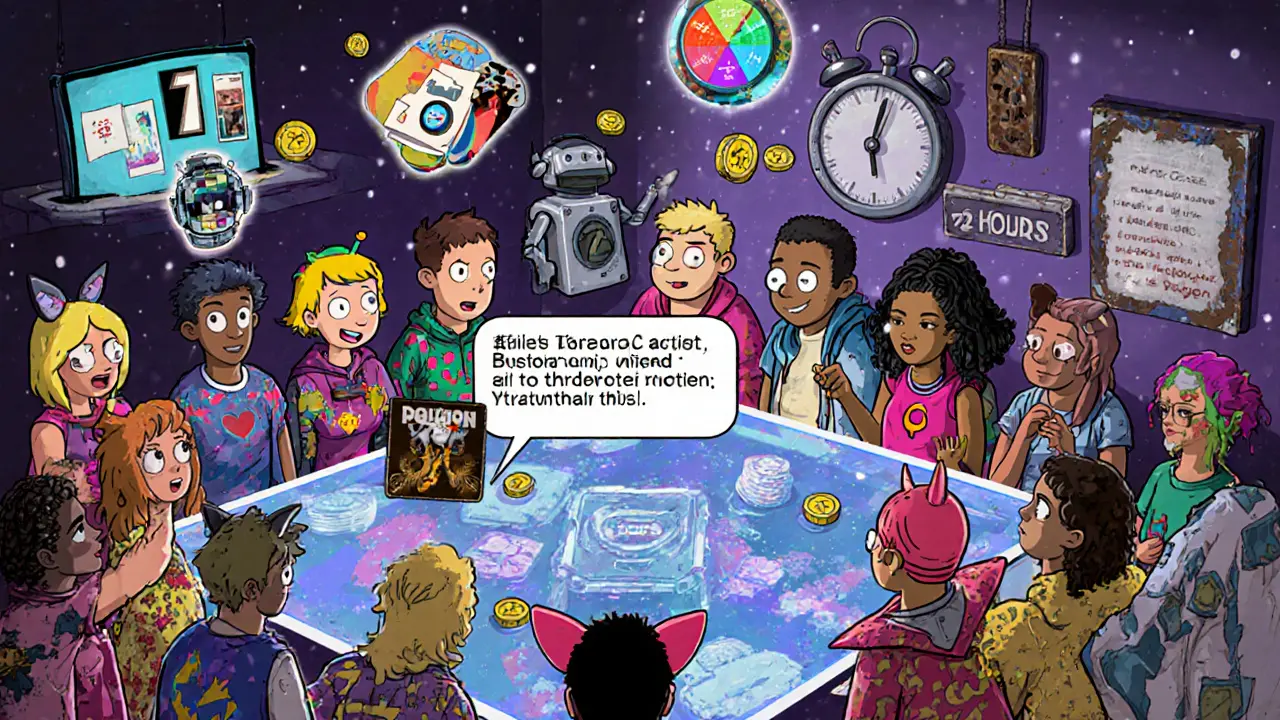
Who’s Using NFTs? Mostly Independents
Big labels were slow to adopt NFTs. Universal Music Group only launched its own platform, Eiffel, in late 2024. Meanwhile, 68% of music NFT creators are independent artists, according to a 2025 Soundcharts survey.
Why? Because they have the most to gain. A band in Austin, Texas, sold 500 NFTs of their new album for $25 each. They made $12,500 in one week. On Spotify, that same album would’ve taken two years to earn that much - if they even got paid at all.
Electronic and dance music lead the NFT space, making up 42% of all music NFT sales. Why? Because their fans are tech-savvy, used to digital experiences, and already active in crypto communities. But rock, hip-hop, and indie artists are catching up fast.
The Problems Still Holding NFTs Back
It’s not all smooth sailing. There are real issues.
Complexity: Only 28% of artists feel confident using NFT platforms. Setting up a MetaMask wallet, paying gas fees, understanding ERC-721 vs. ERC-1155 - it’s confusing. Platforms like Sound.xyz have cut the learning curve from 28 hours to 12, but it’s still a barrier.
Scams and broken promises: Rapper Lil Pump sold NFTs in 2022 promising exclusive content and events. None were delivered. Fans sued. He paid $1.2 million in settlements. Trust is fragile.
Copyright chaos: Only 41% of music NFTs properly document who owns the rights to the song - the writer, the producer, the sample clearance holder. If the NFT is resold and royalties are paid, but the wrong person gets paid? That’s a legal mess.
Not everyone has crypto: Only 15% of music listeners own cryptocurrency. The rest are locked out. That’s why Spotify’s 2025 partnership with Polygon matters - it lets fans use their streaming history to unlock NFT benefits without buying crypto first.
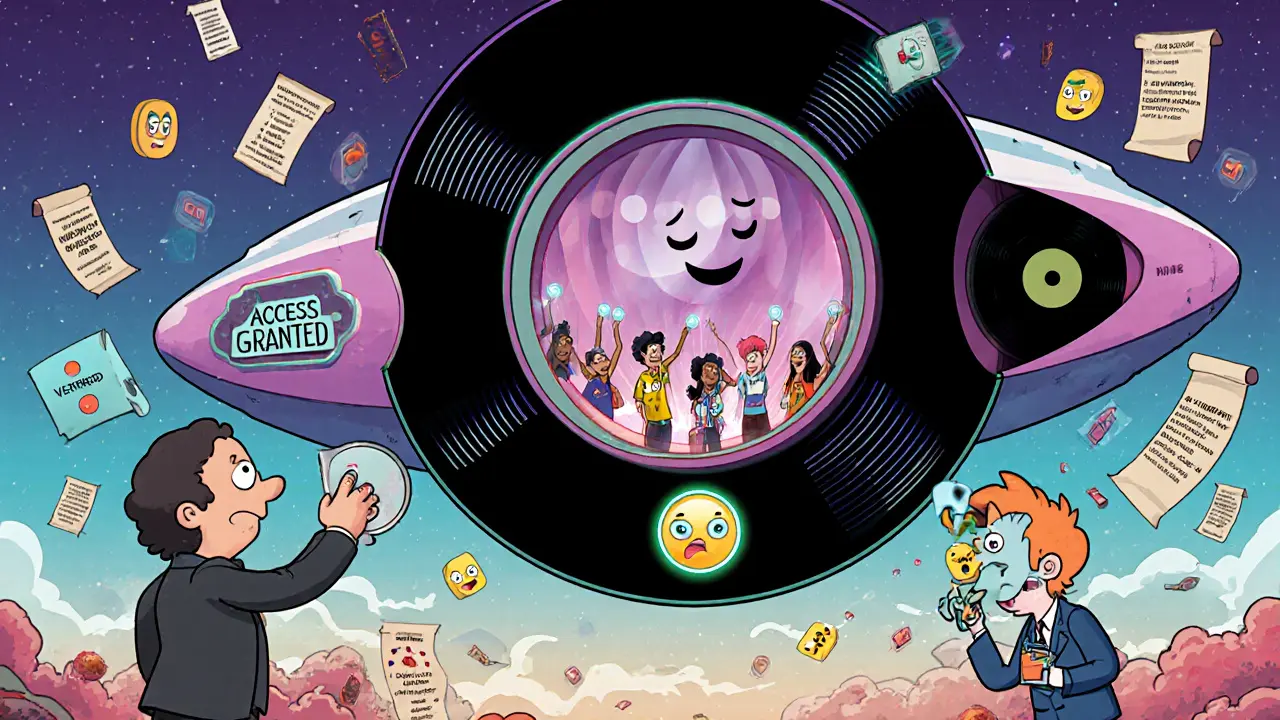
What’s Next? The Road to 2026 and Beyond
The future of NFTs in music isn’t about selling $10,000 digital albums. It’s about integration.
Fortnite hosted 120 virtual concerts in 2024, selling NFT tickets that granted access to exclusive in-game items. Sony’s Dream Machine uses AI to generate unique album art based on your listening habits - and turns it into a personalized NFT. Bandcamp added NFT support in 2024, and artist revenue per user jumped 34%.
By 2026, the Music Blockchain Alliance plans to launch a universal standard for royalty distribution. That means no more messy contracts or mismatched rights. If you own a slice of a song, you’ll get paid correctly - every time.
Regulations are catching up too. The EU’s MiCA framework gives clear rules for music NFTs. The U.S. Copyright Office now requires platforms to verify ownership before minting. That’s a big step toward legitimacy.
The real test? Sustainability. The market dropped 62% in 2023. But since then, it’s stabilized. And by 2025, 78% of new music NFTs offer real utility - not just JPEGs. That’s the sign of maturity.
Should You Get Involved?
If you’re an artist: Start small. Mint one NFT with a bonus track or a personal message. Use Polygon to save on fees. Let fans buy into your journey, not just your music.
If you’re a fan: Don’t buy NFTs hoping to flip them for profit. Buy them because you love the artist and want to be part of their world. Look for NFTs that offer actual perks - access, content, voting rights.
If you’re a label or platform: Stop treating NFTs as a gimmick. Build real infrastructure. Fix the metadata problem. Make it easy to use. That’s where the value is.
NFTs in music aren’t going to replace Spotify. But they’re fixing what Spotify never could: giving artists control, fans ownership, and everyone transparency. It’s not a revolution. It’s a repair job. And it’s already working.
Do NFTs give artists real money, or is it just hype?
Yes, NFTs give artists real money - and it’s often more than streaming. Artists keep 70-90% of NFT sales, compared to 12-15% on Spotify. Platforms like Royal and Opulous also pay ongoing royalties from secondary sales, sometimes for years. Independent artists have reported earning more in one week from NFTs than they did in two years on streaming services.
Can I buy music NFTs without cryptocurrency?
Yes, but it’s limited. Some platforms like Spotify’s 2025 integration with Polygon let you unlock NFT benefits using your streaming history. Others, like Sound.xyz, now allow credit card purchases through third-party gateways. But most NFTs still require a crypto wallet like MetaMask. If you’re new, start with a platform that accepts cards - it’s easier.
Are music NFTs environmentally harmful?
Not anymore. Ethereum, the most popular blockchain for music NFTs, switched to a low-energy system in 2022 (called the Merge), cutting its energy use by 99.95%. Today, most music NFTs are built on Solana or Polygon, which use less energy than a single Google search. Environmental concerns are largely outdated.
What’s the difference between a music NFT and a regular digital album?
A digital album is just a file you download. A music NFT is a verified digital ownership certificate on the blockchain. It can include extra perks: a share of future royalties, access to exclusive events, voting rights, or even AI-generated artwork based on your listening habits. You’re not just buying music - you’re buying a stake in the artist’s future.
Are music NFTs regulated?
Yes, and it’s getting stricter. The EU’s MiCA framework sets clear rules for NFTs as financial assets. The U.S. Copyright Office now requires platforms to verify copyright ownership before minting. In 2025, 63 new legislative proposals are under review worldwide. This isn’t the Wild West anymore - it’s becoming a legitimate part of the music business.
What’s the best platform to start with as an artist?
For beginners, Sound.xyz is the easiest - it simplifies the process and uses Polygon for low fees. Royal is great if you want to sell royalty shares. Opulous offers strong community support and DeFi tools. Avoid platforms that don’t clearly explain gas fees or copyright rules. Always check if the platform verifies ownership - it’s critical for avoiding legal issues.
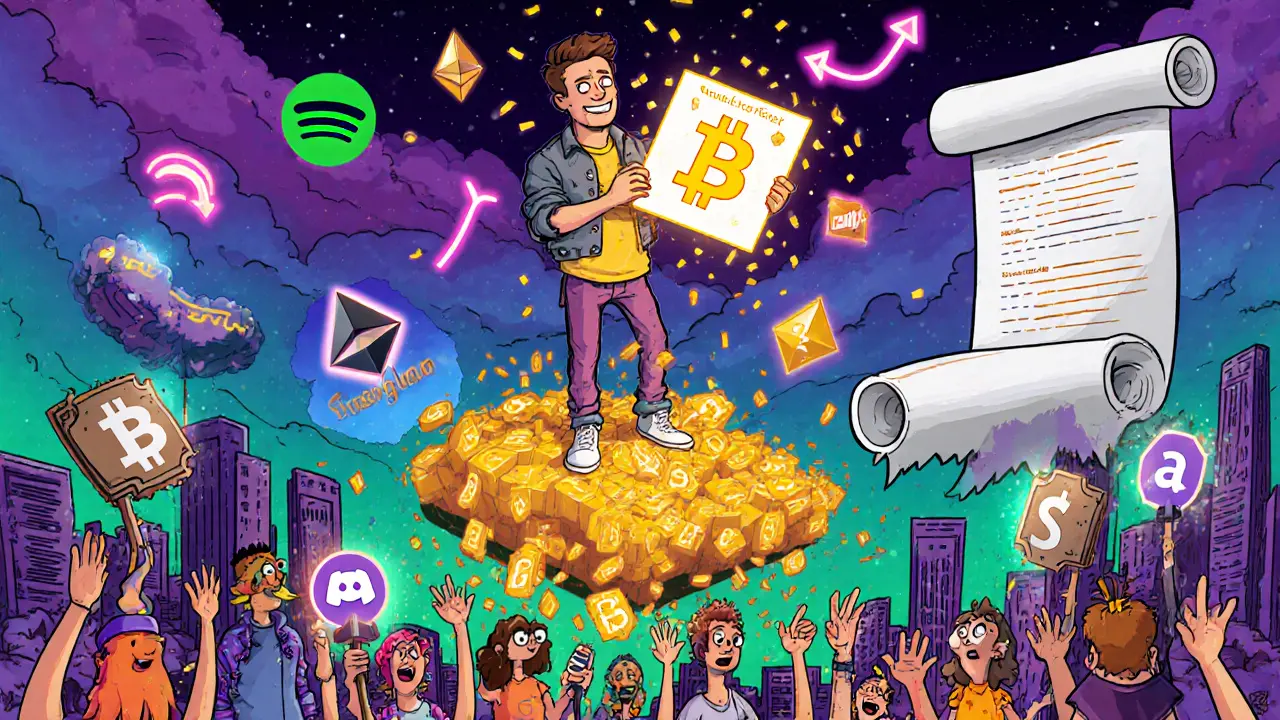
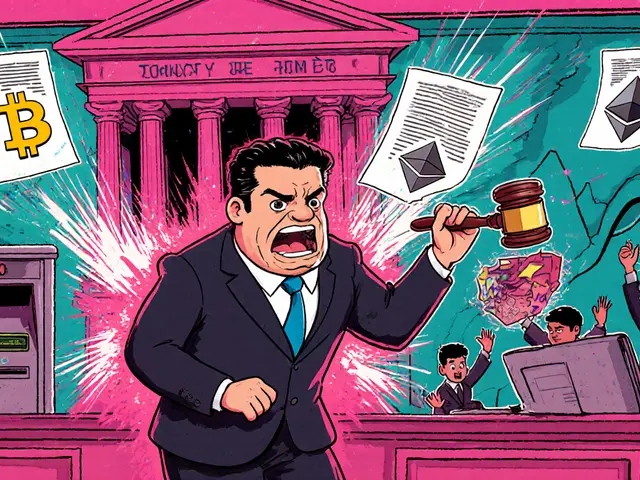
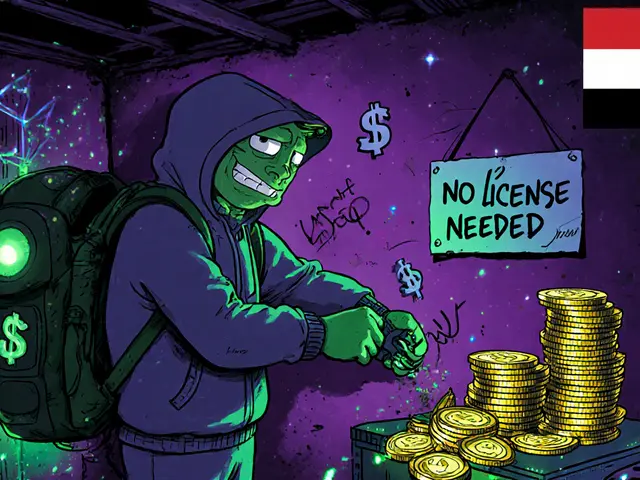
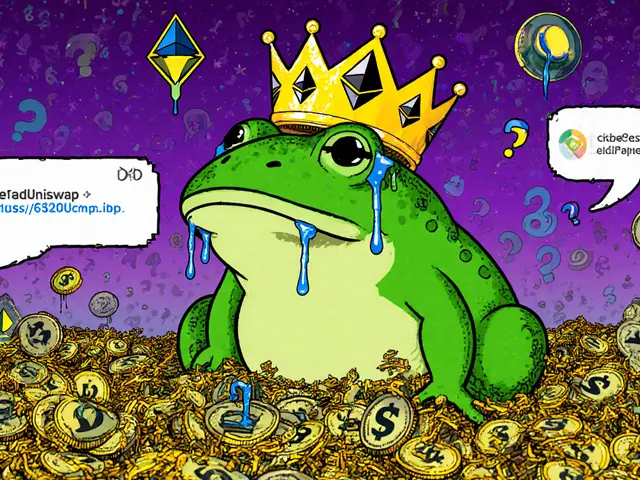
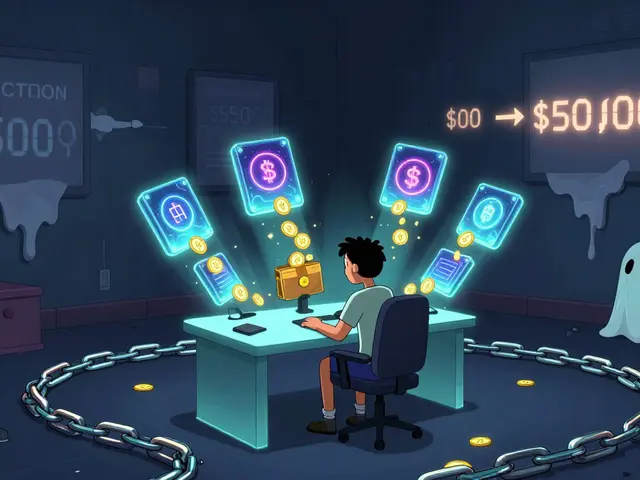
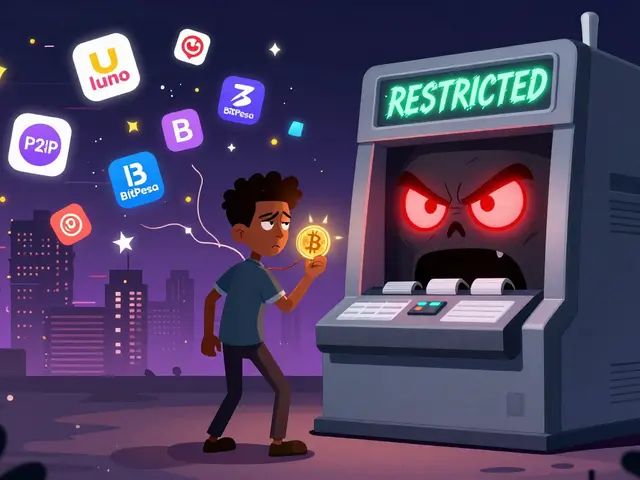
Brian Gillespie
NFTs actually pay. Saw a buddy in Austin make $15k in a week. No label cuts. Just him, his fans, and blockchain.